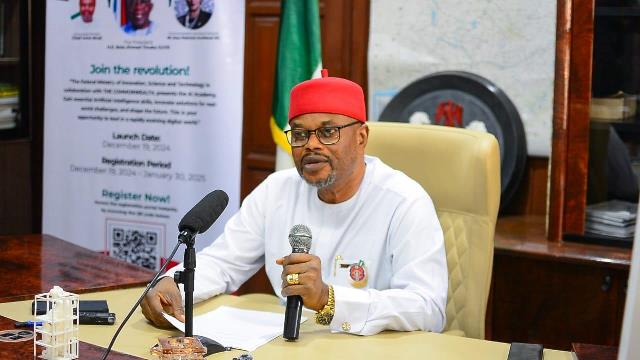The recent case of goods or cargoes being trapped at the Nigerian ports is of national concern. It is a situation that should not be allowed to happen in a country that is grappling with macroeconomic stabilisation and is confronted with challenges in enhancing the purchasing power of ordinary citizens.
Aside from the private loss to the affected importers in terms of accrued demurrage incurred and other implied losses, there’s also the loss to the national economy in terms of stagnation in the business sector and the implications for the flow of goods and the country’s gross domestic product. This development, reportedly caused by persistent network glitches on the Nigeria Customs Service (NCS) digital platform, has indeed resulted in importers, including manufacturers and other merchants, incurring significant losses.
As records indicate, over 5,000 cargoes are trapped in ports amid N2 trillion demurrage losses. The key clearing processes reportedly affected include logging into the platform, registration of Form M, Pre-Arrival Assessment Reports (PAAR) generating, duty payments and final exit clearance. This has made it difficult for banks to connect with the portal for payment, thus making clearing very sluggish. The situation has been compounded by the reintroduction of the four per cent free on board (FOB), which has increased the clearing cost by about 200 per cent. Of course, these will affect the costs of production nationwide and consequently the factory-gate prices of manufactured goods in the country.
There is also the issue of delays that has led to the incidence of waste of perishable goods awaiting clearing. All these are irrespective of the extra costs incurred in the payment of demurrage. For example, port statistics indicate that a 40-foot container attracts a daily demurrage of between N120,000 and N140,000, while a 20-foot container costs about N80,000 daily. In the same vein, the demurrage for a car is N10,000, a truck attracts N35,000, while a caterpillar is charged N45,000.
By virtue of these, it has been estimated by industry watchers that an estimated 5,000 import containers were trapped at Apapa, Tin Can and PTML, all in Lagos, following the network glitches. In the Eastern corridor, Onne Port, Rivers State, according to findings, has turned into a ghost town with almost zero activity recorded in the past two weeks. The continuous disruption in these critical port-clearing services could force factories to scale down production or shut down entirely if the situation persists. The implications for the economy in general and private businesses in particular cannot be totally quantified.
According to the Association of Registered Freight Forwarders of Nigeria, the network glitches have stalled payment processing, cargo exits, and trade documentation, which has thus forced importers and manufacturers to accumulate heavy demurrage, with their raw materials and finished goods stuck at terminals. These unexpected happenings in the sector crippled trade facilitation as banks were unable to access Customs’ payment portals, while clearing agents found themselves unable to push entries through the approved data capture system, leaving goods unpaid for and un-cleared.
While the lamentations by stakeholders are numerous, it is saddening that the NCS has adopted the usual response by government agencies to problems confronting them – a resort to the blame game. The Comptroller General of Customs, Bashir Adeniyi, blames hackers. According to him, part of the downtime was caused by attempts by hackers to infiltrate the Customs digital system. But how did the hackers easily gain access to the NCS portal? Or could it be an insider job, or is it a dereliction of duty by staff of the Customs Service, or merely seeking a scapegoat from outside the system?
One thing that should be made known to government agencies is that their failure to perform their duties as expected has far-reaching implications for the effective functioning of the Nigerian economy and society in general. The level of international trade Nigeria is engaged in through the various ports, especially for importation, is so huge that any problem in the provision of the required services to importers and the few exporters would diminish the performance of the private sector as well as the stability of the economy.
These lapses in technology and/or performance of staff of government agencies in the international trade sector should not be condoned. There is the overarching need to have them addressed as quickly as possible and an effort made to prevent any recurrence in the future. A stitch in time always saves nine. Hopefully, the National Single Window (NSW) implementation will address these concerns and help facilitate trade.






